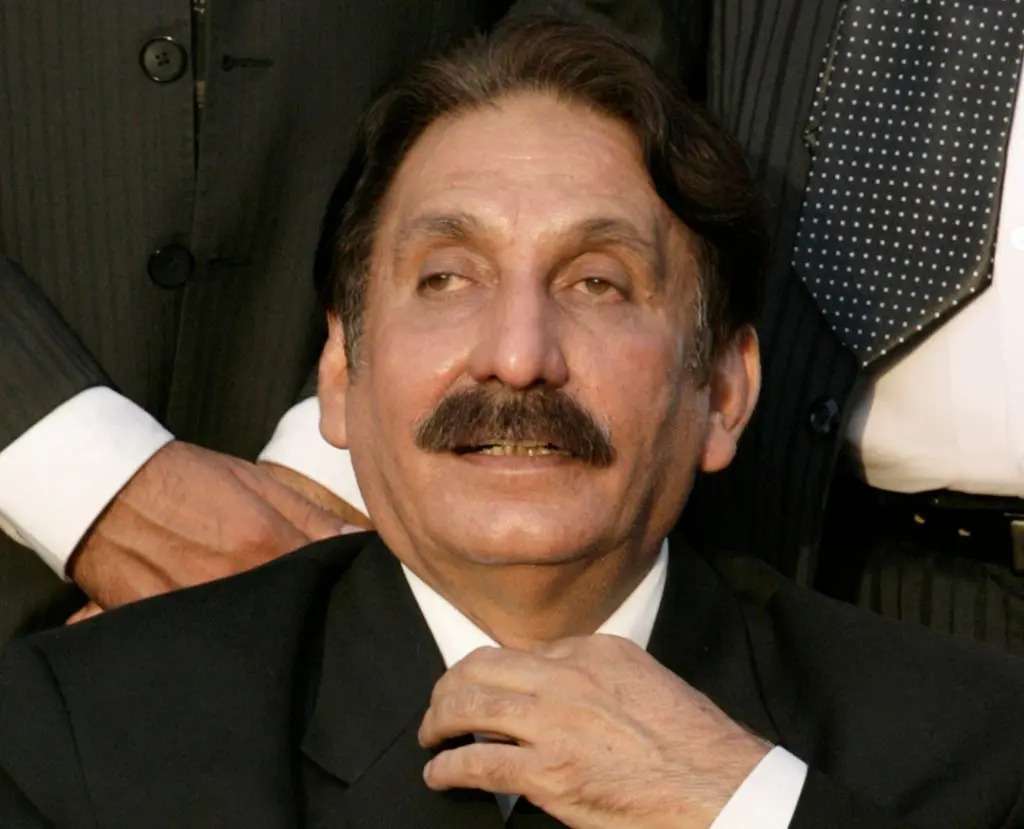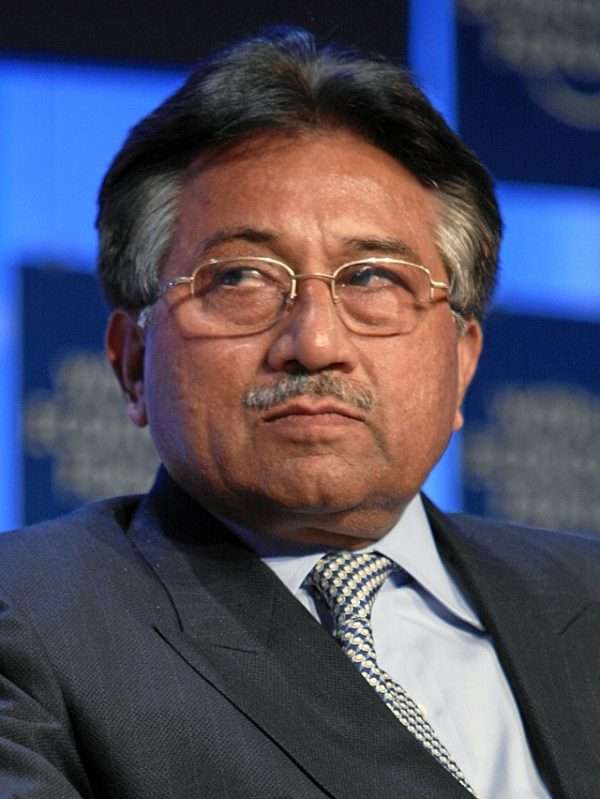According to both legal opinion and mass public perception, prima facie the case against Gen Pervez Musharraf for treason is legally a “slam dunk”, he is guilty as charged. According to Article 6 the extra-constitutional measures Musharraf used on Nov 3, 2009 to remove the SC judges is “treason”. Will the trial court have the audacity to buck what the Supreme Court (SC), headed by the prime victim of Musharraf’s Nov 3 action, had already declared in 2009 as a “done thing”?
If justice is really to be done and it is not just specific vendetta targetting the former President only, a host of others are accessories to the Nov 3 action. The luminaries include the than PM Shaukat Aziz, his entire cabinet, Gen Ashfaq Parvez Kayani, than Vice Chief of Army Staff, (VCOAS) etc. Musharraf may have declared the emergency, who ordered the “Triple one” Brigade to storm into the SC to remove the recalcitrant judges SC headed by Chief Justice Iftikhar Chaudhry? All the (than) associates of Pervez Musharraf may be right in denying that they were consulted prior to the Nov 3 announcement, post facto all of them toed the line. As for those in uniform in some positions, why did they not disobey what the Manual of Pakistan Military Law (MPML) calls as an “unlawful command”?
The only person Musharraf really consulted seems to be Sharifuddin Pirzada, throughout our sordid history this man has contrived to make the military coups “legal”. Gen Musharraf did not heed my advice of Oct 29, 1999 hardly more than two weeks after he took over, “Military rule and Constitution should not go together as a matter of conscience and principle for legal eagles. While Mr. Pirzada may have given excellent legal advice to military men over the years, each of the military regimes was a failure in the ultimate analysis. My late father would remind me ad nauseam, ‘never reinforce failure’,” unquote.
While Musharraf is not guilty of abrogating the Constitution by his Nov 3 action, he did subvert it by holding it in abeyance, or was he given a legal reprieve? A few days later another set of SC judges, those who signed the Provincial Constitution Order (PCO) 2007 and stayed in place as the supreme legal authority in the land for nearly 5 months till March 2008, ratified the Nov 3 measure as legal. On July 31, 2009, 18 months later, the SC, again headed by the restored Chief Justice declared the Nov 3, 2007 action as illegal and unconstitutional under Article 279 of the Constitution. The ambiguity ensures this legal minefield will become controversial in public opinion and not be easy to cross. Already being depicted as a victim of personal vindictiveness, even those who have no real sympathy for Musharraf are questioning the need and the timing to persecute him now.
Was this the right time for the govt to open up a new front? Among the multiple crisis facing Pakistan today, the ones that stand out in order of changing priority are, viz (1) the economy (2) terrorism and (3) sectarian strife. Moreover the drone strikes have become controversial politically, with Imran threatening to block NATO supplies without having thought through the economic and political consequences to the nation. While things are already tough, the NATO blockade will set Pakistan back further economically. One expected that with a business friendly PM Pakistan’s economy would pick-up, while certainly there are a few such indicators, in compliance with stiff IMF conditions, the cost of utilities and other public infra-structure services has gone through the roof, putting an enormous burden on the common man. Commensurately inflation has spiralled upwards with resultant effect on cost of production.
There is a real problem in holding the Musharraf trial and charging Gen Aslam Beg with the distribution of money among politicians, has somebody was-gamed the reaction and consequences thereof? What message are we sending to the Army rank and file? They will not take kindly to their former Chiefs being dragged through court rooms and being humiliated by the media. The prevailing perception is that this sudden enthusiasm for trial is not really meant to put Gen Musharraf and/or Gen Aslam Beg in the dock, but a motivated conspiracy by the politicians and a subverted media to harm the Army. Even though this may not be the Nawaz Sharif govt’s intention at all, it does put the Army on trial by default. Does it make sense to provoke the sentiments of the rank and file?
Three generals are presently facing a military court martial in the NLC case. To effect their charge-sheeting and facing military judicial action, they were brought back from retirement into the Army. A number of senior officers, some generals among them, have been sent home without benefits on punitive administrative action. There is no sympathy for them, mainly because all this has remained within the confines of the Army. If the govt is really hell-bent on trying Gen Pervez Musharraf, it should be more sensitive to devising ways and means of how to go about it.

While the Sharif Govt was left holding an empty economic bag with a large hole in it when they took over, the public does believe Mian Sahib’s promises to alleviate their miseries and take them out of their dire economic straits. Both terrorism and sectarian strife undercuts any effect made by Mian Sahib to revive the economy. There is simmering resentment in the streets, what if the frustration boils over? While terrorism have put a brake on direct foreign investment, if the sectarian problem spins out of control, the present violence will seem to be a picnic in comparison. And things are showing signs of escalation. With the civilian law enforcement agencies (LEAs), already stretched maintaining the deteriorating situation, be able to control the situation? What happened to the police in Rawalpindi can happen again. Whether it be natural disaster or one man-made, in the ultimate analysis the country always turns to the Army when it is dire need.
Through the last decade the Army has been engaged full-time in counter-insurgency. In the meantime terrorism has proliferated through the heartland while we played politics with the concept of a dedicated counter-terrorism force (CTF). The Army has given great sacrifice, with over 4000 killed, multiple more thousands badly wounded, all this to go with over 40000 civilian casualties inflicted by terrorist action. On May 10, 1988 I had written, to quote, “A soldier has not much to offer except his life for his country and a deep conviction that in sacrificing his life he will be saving that of countless others or even from surviving a living death under foreign tutelage. Everyone gets paid to do one’s work but only a soldier (a sailor and an airman) is expected to give up his life for his country when required to do so. His life is thus forfeit to the Nation, an equitable mortgage which is held not only for the succour of the nation’s population but as an effective deterrent to ensure peace and stability against adventurism. The single most positive factor in Pakistan for peace and tranquility is the strong, stable Pakistan Army, the finest fighting machine in the world, a reputation that particularly wards off adventurism from our loving neighbour, India. It is in our self-interest to sustain and motivate this fine Army and not resort to self-flagellation. Criticism, if any, should be well conceived and objectively targeted without slurring the reputation of the Army as a whole. Our population desperately needs economic emancipation to better its present lot and it behoves us to leave well alone one of the surest means of maintaining the pace of economic development.”
Clausewitz’s first principle of war (and one dare says peace) is “the selection and maintenance of aim”. Any govt in Pakistan must aim to ameliorate the miseries of the masses, all its actions would be directed towards maintaining that aim. After the corruption and misrule of the Zardari regime, the people of Pakistan made a conscious clear choice in electing Mian Nawaz Sharif to office with a considerable mandate. High hopes are vested by the masses in his govt. Believing Mian Sahib when he says, “everyone must be on the same page with respect to economy and security,” one strongly feels that, in exclusion to such extraneous matters that may derail all his sincere efforts, he must bring all his govt’s potential to bear on solving the country’s problem for which he was elected.
Fully 25 years ago similar advice was given in my article suggestively entitled “LEAVE THE ARMY ALONE”.
Courtesy: The News




